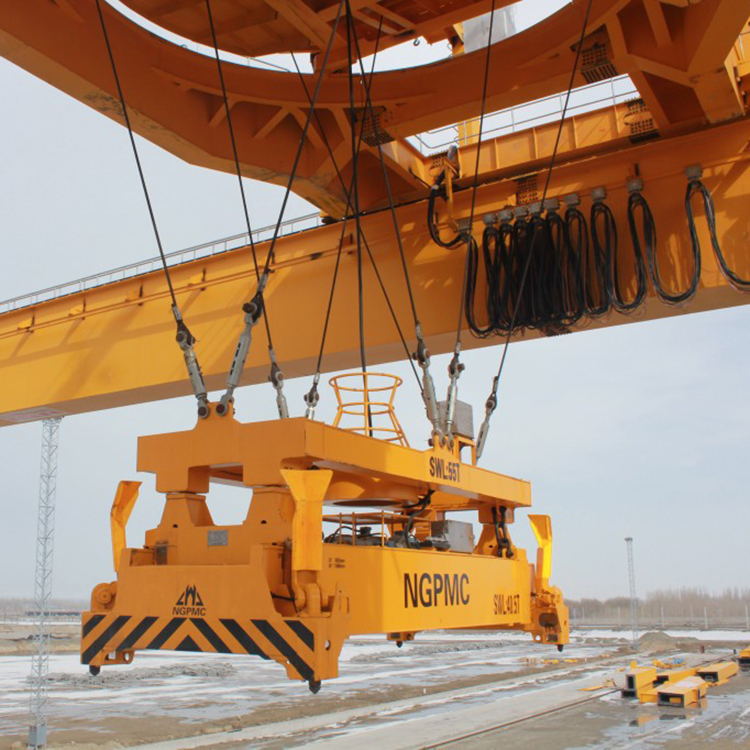Regarding the structural characteristics of container cranes, when we use container spreaders, it is recommended to have a certain understanding of the characteristics of container spreaders. As a container spreader manufacturer, let me take everyone to learn together!
According to their structural characteristics, container lifting tools can be divided into 4 types, namely: fixed lifting tools, master-slave lifting tools, son-mother lifting tools and telescopic lifting tools.

1. Fixed lifting tools: fixed lifting tools are also called integral hoisting tools, which can only load and unload containers of one specification. It has no special power device, and the ratchet mechanism is driven to rotate the rotary lock by the lifting of the wire rope, so as to realize the automatic opening and closing of the rotary lock by the mechanical movement of the wire rope. This hoisting tool is simple in structure and light in weight, but inconvenient to use. It is generally used for multi-purpose gantry cranes and general gantry cranes.
2. Master-slave lifting tools: master-slave lifting tools are also called combined hoisting tools. This hoisting tool is composed of a combination of upper and lower hoisting tools. Generally, the upper hoisting tool is 20ft container operation, and the lower hoisting tool is 40ft container operation. The container spreader is equipped with a power device. When lifting containers of different specifications, just load or unload the lifting tools. Compared with the fixed hoisting tool, the master-slave hoisting tool is convenient to use, but the weight is heavier.
3. Son-mother hoisting tool: Son-mother hoisting tool is also called change-up hoisting tool. This hoisting tool is equipped with a power system on its special hoisting beam to drive various mechanisms on the following hoisting tool. A variety of fixed lifting tools such as 20ft and 40ft can be replaced under the lifting beam. Compared with the master-slave hoisting tool, it has a lighter weight, but it takes longer to replace the hoisting tool.
4. Telescopic hoisting tool: The telescopic hoisting tool drives a telescopic chain or cylinder through hydraulic transmission (At present, there are also direct drives that do not use hydraulic pressure but instead use electric motors.), so that the length of the hoisting tool can be changed by automatic expansion to adapt to loading and unloading containers of different specifications. Although telescopic hoisting tools are heavy, they are convenient in length adjustment, flexible in operation, strong in versatility, and high in production efficiency. Therefore, most of the world's special container machinery uses this hoisting tool.